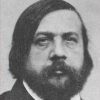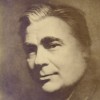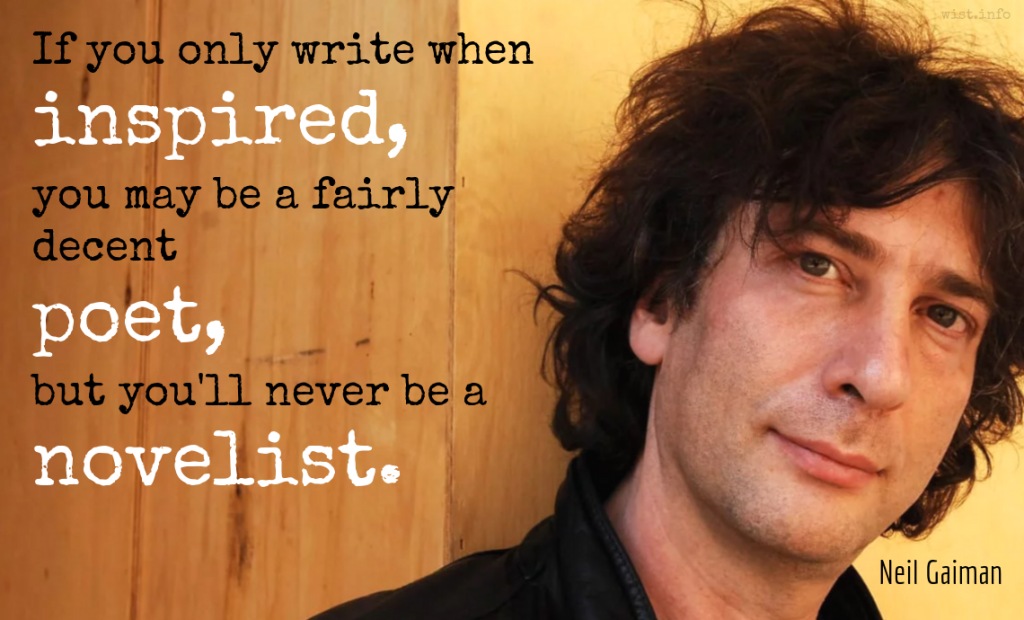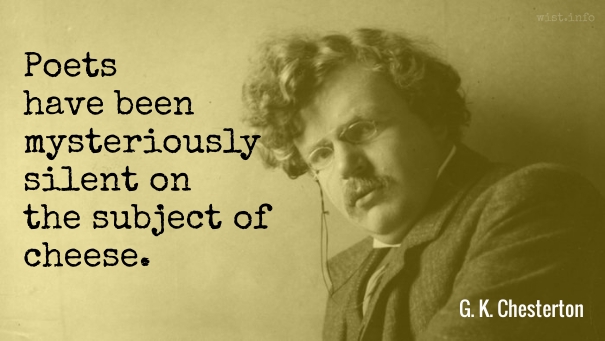The house of the bard Theodorus burned down!
What an insult, O Muses, to you!
The gods have done wrong:
For the credit of song
The bard — should have burned with it, too.
[Pierios vatis Theodori flamma penates
Abstulit. Hoc Musis et tibi, Phoebe, placet?
O scelus, o magnum facinus crimenque deorum,
Non arsit pariter quod domus et dominus!]Martial (AD c.39-c.103) Spanish Roman poet, satirist, epigrammatist [Marcus Valerius Martialis]
Epigrams [Epigrammata], Book 11, epigram 93 (11.93) (AD 96) [tr. Nixon (1911), “An Oversight”]
(Source)
"On Theodorus, a Bad Poet." (Source (Latin)). Alternate translations:
Flames Theodore's Pierian roofs did seize.
Can this Apollo, this the Muses, please?
O oversight of the gods! O dire disaster!
To burn the harmless house, and spare the master!
[tr. Killigrew (1695)]
Poor poet Dogrel's house consum'd by fire?
Is the muse pleas'd? or father of the lyre?
O cruel Fate! what injury you do,
To burn the house! and not the master too!
[tr. Hay (1755), ep. 94]
The poor poet Theodore's goods, in a flame,
Gave you, wicked Muses, and Phebus full glee.
Ye sov'rain disposers, what sin and what shame,
That holder and house so disparted should be!
[tr. Elphinston (1782), Book 3, ep. 49]
Fitzgerald's house hath been on fire -- the Nine
All smiling saw that pleasant bonfire shine.
Yet -- cruel Gods! Oh! ill-contrived disaster!
The house is burnt -- the house -- without the Master!
[tr. Byron (c. 1820); referencing Irish/British poet, William Thomas Fitzgerald (1759-1829)]
The flames have destroyed the Pierian dwelling of the bard Theodorus. Is this agreeable to you, you muses, and you, Phoebus? Oh shame, oh great wrong and scandal of the gods, that house and householder were not burned together!
[tr. Bohn's Classical (1859)]
The poetic abode of bard Theodorus a fire has destroyed. Does this please you, ye Muses, and you, Phoebus? Oh, what guilt, oh, what a huge crime and scandal of the gods is here! House and master did! House and master did not burn together!
[tr. Ker (1919)]
A poet’s house consumed by fire!
Phoebus and ye, the heavenly choir,
What vengeance will ye now require
For such a fell disaster?
How foul a deed, how black a shame!
Can men acquit the gods of blame
When they delivered to the flame
The house and not its master?
[tr. Pott & Wright (1921), "The Gods' Mistake"]
Where were ye, Muses, when in angry flame
Sank Pye's Pierian dwelling? Phoebus, shame!
Oh cruel sin, o scandal to the sky,
To bake the Pye-dish and forget the Pye!
[tr. Francis & Tatum (1924), ep. 634; referring to Henry James Pye (1745-1813), Poet Laureate of the UK]
Not a single trace remains
Of poet Theodorus' home.
Everything completely burned,
Every last poetic tome!
You Muses and Apollo too,
Now are you fully satisfied?
O monstrous shame that when it burned
The poet was not trapped inside!
[tr. Marcellino (1968)]
Flames have gutted th' abode Pierian
Of the wide-renowned poet Theodorus.
Didst thou permit this sacrilege, Apollo?
Where were ye, Muse's Chorus?
Ay me, I fondly sight, that was a crime,
A wicked deed, a miserable disaster.
Ye gods are much to blame: ye burnt the house
But failed to singe its master!
[tr. Wender (1980)]
Ted's studio burnt down, with all his poems.
Have the Muses hung their heads?
You bet, for it was criminal neglect
not also to have sautéed Ted.
[tr. Matthews (1992)]
Fire has consumed the Pierian home of poet Theodoras. Does this please the Muses and you, Phoebus? Oh crime, oh monstrous villainy and reproach to heaven! -- that house and householder did not perish together.
[tr. Shackleton Bailey (1993)]
Flames took the home of poet Theodorus.
Are the Muses and Phoebus pleased with this disaster?
What a great crime and insult to the gods
not to have burned together home and master!
[tr. McLean (2014)]
Quotations about:
poet
Note not all quotations have been tagged, so Search may find additional quotes on this topic.
At your approach the neighbours flee,
What is the cause that makes them flout you.
And that wherever you may be
A desert seems to spread about you?A tigress of her whelps bereft
May fill the bravest heart with terror;
Untouched the basking snake is left
And handling scorpions is an error;But you provide a peril worse —
Tis this, you overact the poet;
When you persist in reading verse,
Could any patience undergo it?For though I run or stand or sit
With verse my ears are still blockaded;
Aye, at the baths I must submit,
My privy chambers are invaded,You stop me on my way to dine,
Then wearied by your droning numbers
My seat at table I resign —
I fall asleep — you break my slumbers.Observe the evil that you do.
Though good, men hold you as pernicious ;
And thus an upright bore like you
Makes even virtue look suspicious.[Occurrit tibi nemo quod libenter,
Quod, quacumque venis, fuga est et ingens
Circa te, Ligurine, solitudo,
Quid sit, scire cupis? Nimis poeta es.
Hoc valde vitium periculosum est.
Non tigris catulis citata raptis,
Non dipsas medio perusta sole,
Nec sic scorpios inprobus timetur.
Nam tantos, rogo, quis ferat labores?
Et stanti legis et legis sedenti,
Currenti legis et legis cacanti.
In thermas fugio: sonas ad aurem.
Piscinam peto: non licet natare.
Ad cenam propero: tenes euntem.
Ad cenam venio: fugas sedentem.
Lassus dormio: suscitas iacentem.
Vis, quantum facias mali, videre?
Vir iustus, probus, innocens timeris.]Martial (AD c.39-c.103) Spanish Roman poet, satirist, epigrammatist [Marcus Valerius Martialis]
Epigrams [Epigrammata], Book 3, epigram 33 (3.44) (AD 87-88) [tr. Pott & Wright (1921)]
(Source)
"To Ligurinus." (Source (Latin)). Alternate translations:
That none would meet thee willingly,
But where so ere thou com'st, all fly
O Ligurinus, wouldst thou know it?
The cause is th' art too much a Poet.
That fault is wondrous dangerous.
No Tiger robb'd of whelpes by us
So much is fear'd, no Scorpion,
Nor Dipsas basking in the Sun.
For who can ere endure such paine?
Standing thou read'st, sitting againe;
Running, and at the privy too.
To th' bath I goe; there readest thou.
I goe to swimme; thy Booke delayes me.
I goe to supper; thence it stayes me.
When I am set, thy reading makes me
To rise; and when I sleepe, it wakes me.
Behold, what hurt thou dost. None can
Brooke thee a just, good, harmelesse man.
[tr. May (1629)]
You come: away flies every mother's son:
On Bagshot Heath you can't be more alone.
If you ask, why? -- You are bewitch'd with rhime:
And this, believe me, is a dangerous crime.
Robb'd of her whelps a tigress thus we shun;
Or viper basking in the noon-day sun:
Not more the dreadful scorpion's sting we fear,
Than this incessant lugging by the ear.
Standing or sitting, you repeat your lays:
On my close-stool I hear them; in my chaise:
Your trumpet on the water strikes my ear.
I at Vaux-haull no other music hear.
When dinner waits, you seise me by the button:
At table plac'd, you drive me from my mutton:
From a sweet nap you rouse me by your song.
How much by this yourself and me you wrong!
The man of worth the poet makes us fly;
And by your verse we lose your probity.
[tr. Hay (1755)]
That happiness and thee can no man meet,
Where'er thou rom'st, that one and all retreat;
That thee a solitude immense surrounds,
The why thy knowledge and thy wit confounds.
The why is this: thou art a very poet.
The fault is not, to be one; but to show it.
Not so, of whelps bereft a tigress dire;
Not so, a sunburnt serpent in her ire;
Us not the balefull scorpion so can scare:
What living man con constant murder bear?
Standers thou readest down, and those that sit;
And him that runs, and him that works his wit.
Flying into the bath, I waters limn:
Plunging into the pond, I may not swim.
I haste to supper; thou detain'st in spite:
I lean at supper: thou enjoy'st my flight.
When sleep would mercifully seal mine eyes,
Thou mercilessly bidd'st the slumb'rer rise.
Would'st comprehend what words thou work'st of woe?
The cause and consequence one word shall show.
A man for parts and probity rever'd,
Thou art by all, insted of worshipt, FEAR'D.
[tr. Elphinston (1782), Book 7, ep. 25]
Do you wish to know the cause why no one willingly meets you? that wherever you come, Ligurinus! you put people to flight, and create a solitude around you? The cause is, that you are too much of a poet. This is a very perilous fault. A tiger exasperated by the capture of her whelps, a serpent scorched by the mid-day sun, a fierce scorpion are objects of less dread. For, I ask, who would willingly sustain the labours you are in the habit of imposing? You read your verses to the stander, you read them to the sitter, you read them to the runner, you read them to every one, whatever he is about. I fly to the warm baths, your voice sounds in my ear. I seek a cold bath, you interrupt my swimming. I hasten to supper, you detain me on the way; I have got to supper before you, you oblige me to change my seat. I am wearied with hearing you, and go to sleep, you rouse me as I recline on my couch. Do you desire to know the harm you do? Just, moral, innocent as you are known to be by all men, by all men you are feared.
[tr. Amos (1858), "An Inopportune Reciter"]
Do you wish to know the reason, Ligurinus, that no one willingly meets you; that, wherever you come, everybody takes flight, and a vast solitude is left around you? You are too much of a poet. This is an extremely dangerous fault. The tigress aroused by the loss of her whelps, the viper scorched by the midday sun, or the ruthless scorpion, are less objects of terror than you. For who, I ask, could undergo such calls upon his patience as you make? You read your verses to me, whether I am standing, or sitting, or running, or about private business. I fly to the hot baths, there you din my ears: I seek the cold bath, there I cannot swim for your noise: I hasten to dinner, you stop me on my way; I sit down to dinner, you drive me from my seat: wearied, I fall asleep, you rouse me from my couch. Do you wish to see how much evil you occasion? -- You, a man just, upright, and innocent, are an object of fear.
[tr. Bohn's Classical (1859)]
Why everybody shuns your sight,
And why, since all are put to flight,
Wherever your approach is viewed,
The place is one vast solitude : --
This, Ligurinus, would you know?
You're too poetical, I trow.
'Tis dangerous having this repute.
Not savage tigress in pursuit
Of them that stole her whelps away,
Not serpent, scorched by burning ray
Of Libya's sun, not scorpion fell
Is deemed by all so terrible.
For, prythee tell me, who could bear
The burdens you for folk prepare?
Should I stand by, your rhymes you read;
Or if I sit, you still proceed.
To the hot baths I fly for fear:
You din your verses in my ear.
Chased thence, I seek the plunge-bath's brim:
But while you're ranting, who could swim?
To dinner then I haste: alack!
Just as I start, you hold me back.
The table reached, I fain would eat:
You scare me as I take my seat.
Quite wearied out, to sleep I try:
You rouse me ere I down can lie.
Shall I, my friend, make plain to you
What serious mischief 'tis you do?
All fear you still, and fly you far,
Good, upright, blameless as you are.
[tr. Webb (1879)]
The cause of the rout
When it's rumored you're out,
Since you wish, Ligurinus, to know it.
Of your making bare space
Of a populous place
Is just this -- you're too much of a poet.
It 's a terrible thing.
This craving to sing:
No tiger that 's robbed of her youngling.
No snake in the sun,
No irate scorpion
Is so feared as your metrical bungling.
Whether one's sitting down.
Or is walking down town.
Or is even engaged with his toilet,
Or stretching a limb
In a run at the gym,
Up you come with an eclogue to spoil it.
When I flee to the bath
You are fast on my path,
Bawling ballads that drive me phrenetic.
I jump in the tank
And reflect if I sank
That drowning's at least anaesthetic.
When I run out to meals
You recite at my heels,
Read me epitaphs while I'm at table.
I retire, wearied out.
And am waked by your shout
That I must hear your versified fable.
Now a poet's worst rhymes
May be doubtful at times.
But the best ones of yours are outrageous
You see now, I trust,
Why, though honest and just.
You are treated like something contagious.
[tr. Nixon (1911), "The Progress of Poesy"]
That no man willingly meets you, that, wherever you arrive, there is flight and vast solitude around you, Ligurinus, do you want to know what is the matter? You are too much of a poet. This is a fault passing dangerous. No tigress roused by the robbery of her cubs, no viper scorched by tropic suns, nor deadly scorpion is so dreaded. For who, I ask you, would endure such trials? You read to me while I am standing, and read to me when I am sitting; while I am running you read to me, and read to me while I am using a jakes. I fly to the warm baths: you buzz in my ear; I make for the swimming bath: I am not allowed to swim; I haste to dinner: you detain me as I go; I reach the table: you rout me while I am eating. Wearied out, I sleep: you rouse me up as I lie. Do you want to appreciate the evil you cause? Though you are a man just, upright, and harmless, you are a terror.
[tr. Ker (1919)]
That no one, Ligurinus, likes to meet
Your visage, that there's panic in the street
At your approach, the reason, would you know it?
Well, Ligurinus, you're too much a poet.
A grievous fault, with perilous mischief fraught.
No tigress, for her captive brood distraught,
Puff-adder sweltering in the noon-tide heat,
Or ruthless scorpion is so dread to meet.
Who can endure it? Standing, in repose,
Your strain pursues me; while I bathe it flows.
I seek the swimming-pool; no refuge there.
I haste to dinner; there's another scare.
Weary I sleep; you wake me. What's your error?
Just, righteous, harmless, you're a holy terror.
[tr. Francis & Tatum (1924), ep. 138]
No one wants to meet you: When you arrive
there’s a wild rush for the exits,
and a great vacuum develops around you.
You want to know why?
It’s because you’re too much the poet.
Your art poses a decidedly dangerous threat,
it makes you more to be feared than a leaping tigress
whose cubs have been taken from her;
worse than midday heat that makes thirsty people frantic,
worse than the vengeful scorpion, are you to be feared.
Who can stand up under the punishing work
you heap on our shoulders? You read your stuff
when I'm standing still, you read your stuff
when I'm on the run, you read your stuff
when I'm on the pot. I head for the baths
where your voice bounces off the walls
and dins in my ears. I try the swimming pool --
but you won't let me swim. As I'm hurrying off
to a dinner party, you detain me to listen,
and when I get there, there you are too,
pursuing me when I'm supine on the couch,
tired, I like down to sleep, but you
have to wake me up to listen.
Can't you bring yourself to see how much wrong
you're doing me? Here you are, a fine honest fellow,
an innocent bystander --
and we're all scared to death of you.
[tr. Bovie (1970)]
Why, you ask, whenever you show your face
Is there a public stampede, a vast unpopulated space?
The answer -- you may as well know it --
Is that you overact the poet:
A grave fault,
Ligurinus, and one which could easily earn you assault.
The tigress robbed of her young,
The scorpion's tail, the heat-crazed puff-adder's tongue
Are proverbial, but you're worse;
For who can endure ordeal by verse?
You read to me when I'm standing and when I'm sitting,
When I'm running and when I'm shitting,
If I head for the warm baths you make my ears buzz with your din,
If I want a cold dip you stop me from getting in,
If I'm hurrying to dinner you detain me in the street,
If I reach the table you rout me out of my seat,
If I collapse, exhausted, into bed you drag me to my feet.
Do you never pause
To consider the havoc you cause?
You're a decent citizen, upright and pious,
But, by God, you terrify us!
[tr. Michie (1972)]
Do you wish to know why it is, Ligurinus, that nobody is glad to meet you, that, wherever you go, there is flight and a vast solitude around you? You are too much of a poet. This is a very dangerous fualt. A tigress roused by the theft of her cubs is not feared os much, nor yet a viper burnt by the midday sun, nor yet a vicious scorpion. For I ask you, who would endure such trials? You read to me as I stand, you read to me as I sit, you read to me as I run, you read to me as I shit. I flee to the baths: you boom in my ear. I head for the pool: I'm not allowed to swim. I hurry to dinner: you stop me in my tracks. I arrive at dinner: you drive me away as I eat. Tired out, I take a nap: you rouse me as I like. Do you care to see how much damage you do? A just man, upright and innocent, you are feared.
[tr. Shackleton Bailey (1993)]
You wonder why no people pay you heed?
Well, I'll unveil the mystery -- you read.
Incessantly, you foist on us your rhymes,
A legendary peril of our times.
No mother tiger snarling near her cubs,
No snake attacking us despite our clubs,
No scorpion paralyzingly come near,
Can deal us such humiliating fear
As you, in undeterr'd reciting mode
Producing endless drivel by the load.
I stop and you are dinning in my ear,
I run and hear you panting in the rear.
you fill our homes with unremitting roar.
I even hear you through the outhouse door.
A public nuisance at the public bathing,
For tow'ls you give us pages for our swathing.
To dinner we go in, out comes your verse.
The same old tired nonsenses or worse.
At street corners we timorously look
To seek if you are lurking in a nook,
Poised to bombard us with your lethal book.
I go to bed and still I hear you drone.
Have you no soundproof hovel of your own?
Some honesty you have, but far below it,
You are that deepest pestilence -- a poet.
[tr. Wills (2007)]
BLANK-VERSE, n. Unrhymed iambic pentameters — the most difficult kind of English verse to write acceptably; a kind, therefore, much affected by those who cannot acceptably write any kind.
Ambrose Bierce (1842-1914?) American writer and journalist
“Blank-verse,” The Cynic’s Word Book (1906)
(Source)
Included in The Devil's Dictionary (1911). Originally published in the "Devil's Dictionary" column in the San Francisco Wasp (1881-05-14). In that version, it included the final sentence:
Of all English and American poets not a half-dozen have been able to write good blank-verse; and the six hundred Californian poets are not among them.
You write two hundred lines a day, but don’t recite.
Varus, you are wise, if none too bright.[Cum facias versus nulla non luce ducenos,
Vare, nihil recitas. Non sapis, atque sapis.]Martial (AD c.39-c.103) Spanish Roman poet, satirist, epigrammatist [Marcus Valerius Martialis]
Epigrams [Epigrammata], Book 8, epigram 20 (8.20) (AD 94) [tr. McLean (2014)]
(Source)
"To Varus." See also 2.88.
(Source (Latin)). Alternate translations:
Each day you make two hundred verses, sott,
But none recite: you're wise, and you are nott.
[16th C Manuscript]
You make two hundred verses in a trice;
But publish none: -- The man is mad and wise.
[tr. Hay (1755)]
You countless verses pen, each morn you rise;
Yet none recite: how witty, and how wise!
[tr. Elphinston (1782), Book 12, ep. 8]
Though you write two hundred verses every day, Varus, you recite nothing in public. You are unwise, and yet you are wise.
[tr. Bohn's Classical (1859)]
Varus writes facile verse and keeps it mum.
He's weakly garrulous, and wisely dumb.
[tr. Street (1907)]
Every day Varus writes
Scores of verses, I've heard:
But he never recites.
He's both wise and absurd.
[tr. Nixon (1911), "The Wisest Fool"]
Although no day passes but you compose two hundred verses, Varus, you recite none of them. You have no wit -- and yet are wise.
[tr. Ker (1919)]
You write a hundred lines a day?
That means a crazy brain.
And yet you publish none, you say;
That shows that you are sane.
[tr. Pott & Wright (1921), "The Wise Fool"]
Varus, two hundred lines each day that flies
You write and burn. How foolish -- and how wise!
[tr. Francis & Tatum (1924), ep. 401]
Although you write two hundred lines
Of poetry each day,
You shun our constant plea to let us
Hear your poetry.
Two hundred verses every day,
And I, with luck, one line!
You can't be good, though very good
Of you, sir, to decline!
[tr. Marcellino (1968)]
Although you make two hundred verses every day, Varus, you never recite. You are a fool, and you are no fool.
[tr. Shackleton Bailey (1993)]
He turns out verses by the ton,
But never publishes a one.
He is too dumb to be a poet,
But wise enough in fact to know it.
[tr. Wills (2007)]
Though Varus daily sits and writes --
Two hundred lines! -- he neither tries
To publish verses nor recites.
He's not too witty, but he's wise.
[tr. Barth]
You recite no verse, Mamercus, but claim you write.
Claim what you like — so long as you don’t recite.[Nil recitas et vis, Mamerce, poeta videri.
Quidquid vis esto, dummodo nil recites.]Martial (AD c.39-c.103) Spanish Roman poet, satirist, epigrammatist [Marcus Valerius Martialis]
Epigrams [Epigrammata], Book 2, epigram 88 (2.88) (AD 86) [tr. McLean (2014)]
(Source)
"To Mamercus." (Source (Latin)). Alternate translations:
You'd Poet seem, yet nothing you rehearse:
Be what you will, so we ne'er hear your verse.
[tr. Wright (1663)]
Thou would'st a poet be, yet nought dost write:
Be what thou wilt, so nought thou dost indite.
[tr. Killigrew (1695)]
Arthur, they say, has wit. "For what?
For writing?" No -- for writing not.
[tr. Swift (early 18th C)]
Nought you recite, and would be pris'd a poet?
Be what you will, so no reciting blow it.
[tr. Elphinston (1782), 12.18]
You don't recite, but would be deemed a poet;
You shall be Homer -- so you do not show it.
[tr. Byron (early 19th C)]
You don't recite; but still would seem a poet.
You shall be Homer, so you do not show it.
[tr. Byron (early 19th C), alt.]
You recite nothing, and you wish, Mamercus, to be thought a poet. Be whatever you will, only do not recite.
[tr. Bohn's Classical (1859)]
Though you never have read us a line of your verse,
You insist on our thinking you write.
Yes, yes, be a poet; be anything else --
If only you'll forbear to recite.
[tr. Nixon (1911)]
You recite nothing, and yet wish, Mamercus, to be held a poet. Be what you like -- provided you recite nothing.
[tr. Ker (1919)]
You never recite, though you pose as a poet.
Well, for that many thanks: we will gladly forgo it.
[tr. Pott & Wright (1921)]
You'd like to be thought of as a poet
but refuse to recite your material?
Be what you want, Mammercus; the public
will tolerate you so long as you don't inflict
your verse on public nerves.
[tr. Bovie (1970)]
You recite nothing and want to be considered a poet, Mamercus. Be what you like, so long as you recite nothing.
[tr. Shackleton Bailey (1993)]
It is true that the poet does not directly address his neighbors; but he does address a great congress of persons who dwell at the back of his mind, a congress of all those who have taught him and whom he has admired; that constitute his ideal audience and his better self. To this congress the poet speaks not of peculiar and personal things, but of what in himself is most common, most anonymous, most fundamental, most true of all men. And he speaks not in private grunts and mutterings but in the public language of the dictionary, of literary tradition, and of the street. Writing poetry is talking to oneself; yet it is a mode of talking to oneself in which the self disappears; and the product’s something that, though it may not be for everybody, is about everybody.
When a poet is being a poet — that is, when he is writing or thinking about writing — he cannot be concerned with anything but the making of a poem. If the poem is to turn out well, the poet cannot have thought of whether it will be saleable, or of what its effect on the world should be; he cannot think of whether it will bring him honor, or advance a cause, or comfort someone in sorrow. All such considerations, whether silly or generous, would be merely intrusive; for, psychologically speaking, the end of writing is the poem itself.
I believe that man will not merely endure: he will prevail. He is immortal, not because he alone among creatures has an inexhaustible voice, but because he has a soul, a spirit capable of compassion and sacrifice and endurance. The poet’s, the writer’s, duty is to write about these things. It is his privilege to help man endure by lifting his heart, by reminding him of the courage and honor and hope and pride and compassion and pity and sacrifice which have been the glory of his past. The poet’s voice need not merely be the record of man, it can be one of the props, the pillars to help him endure and prevail.
William Faulkner (1897-1962) American novelist
Speech, Nobel Banquet, Stockholm (1950-12-10)
(Source)
Faulkner received the 1949 Nobel Prize for Literature.
Such in the Landes of our world is the poet’s stance;
When he receives no wound, his treasure he’ll retain.
With such deep cut mankind his heart must also lance,
To make him spill his verse, his gold tears’ gushing rain![Le poète est ainsi dans les Landes du monde.
Lorsqu’il est sans blessure, il garde son trésor.
Il faut qu’il ait au cœur une entaille profonde
Pour épancher ses vers, divines larmes d’or!]Théophile Gautier (1811-1872) French poet, writer, critic
“The Pine of Landes [Le Pin des Landes]”, l. 13ff (1840)
(Source)
The metaphor is of a poet as one of the pine trees used in the reforestation of the Landes of Gascogne, having its sap harvested for turpentine. (Source (French)). Alternate translation:
Landes-like, the poet with his poetry,
Unwounded, holds his treasure well controlled.
But he must bear a deep heart-gash if he
Would spread his verses' heavenly tears of gold!
[tr. Shapiro (2011)]
To be a poet at twenty is to be twenty; to be a poet at forty is to be a poet.
[Écrire des vers à vingt ans, c’est avoir vingt ans. En écrire à quarante, c’est être poète.]
Eugène Delacroix (1799-1863) French painter [Ferdinand Victor Eugène Delacroix]
(Attributed)
A review of English sources shows nearly all attributions of this quotation are to Delacroix, albeit without citation to where/when he said or wrote it.
There are some references attributing it to French poet Charles Péguy (1873-1914), e.g., Daniel Halevy's study of Péguy, Péguy and Les Cahiers de la Quinzaine, ch. 12, epigraph (1940) [tr. Bethell (1947)]), but even there, no actual citation is provided.
A few attributions can also be found to Canadian poet Louis Dudek (1918-2001).
A review of French sources show the quotation widely attributed to French author Francis Carco (1886-1958), but, again, I cannot find any actual citations of when or where Carco may have said or written that.
All those men who are preeminent in philosophy or politics or poetry or the other arts are clearly melancholic.
Aristotle (384-322 BC) Greek philosopher
Problems [Problemata], Book 30, Q. 1 / 953a [tr. @sentantiq (2018)]
(Source)
Possibly one of the sources of a famous misattributed Aristotle quotation by Seneca the Younger.
Alternate translation: "All those who have become eminent in philosophy or politics or poetry or the arts are clearly of an atrabilious temperament." [tr. Forster (1927)]
PHILINTE: A gentleman may be respected still,
Whether he writes a sonnet well or ill.
That I dislike his verse should not offend him;
In all that touches honor, I commend him;
He’s noble, brave, and virtuous — but I fear
He can’t in truth be called a sonneteer.”On peut être honnête homme, et faire mal des vers,
Ce n’est point à l’honneur que touchent ces matières,
Je le tiens galant homme en toutes les manières,
Homme de qualité, de mérite et de cœur,
Tout ce qu’il vous plaira, mais fort méchant auteur.Molière (1622-1673) French playwright, actor [stage name for Jean-Baptiste Poquelin]
Le Misanthrope, Act 4, sc. 1, ll. 1144-48 (1666) [tr. Wilbur (1954)]
(Source)
Alt. trans.:
- "A man can be a gentleman and make bad verses. Such matters do not touch his honor, and I hold him to be a gallant man in every other way; a man of quality, of courage, deserving of anything you please, but -- a bad writer." [tr. Wormeley (1894)]
- "A man may be / A perfect gentleman, and write poor verse. / These matters do not raise the point of honor. / I hold him a true man in all respects, / Brave, worthy, noble, anything you will, / But still, a wretched writer." [tr. Page (1913)]
- "Anyone may be an honorable man, and yet write verse badly." [Bartlett]
business business business
grind grind grind
what a life for a man
that might have been a poetDon Marquis (1878-1937) American journalist and humorist
“pete the parrot and shakespeare,” archy and mehtabel (1927)
(Source)
Poets have tried to describe Ankh-Morpork. They have failed. Perhaps it’s the sheer zestful vitality of the place, or maybe it’s just that a city with a million inhabitants and no sewers is rather robust for poets, who prefer daffodils and no wonder. So let’s just say that Ankh-Morpork is as full of life as an old cheese on a hot day, as loud as a curse in a cathedral, as bright as an oil slick, as colorful as a bruise and as full of activity, industry, bustle and sheer exuberant busyness as a dead dog on a termite mound.
Poets are like proverbs: you can always find one to contradict another.
[Les poëtes sont comme les proverbes : l’un est toujours là pour contredire l’autre.]
Jules Verne (1828-1905) French novelist, poet, playwright
The Survivors of the Chancellor, ch. 5 “An Unusual Route” (1875)
(Source)
The Muse was suddenly there for Dad.
The Truth lay easy in his mind.
The Subconscious lay saying its say, untouched, and flowing off his tongue.
As we must learn to do in our writing.
As we can learn from every man or woman or child around us when, touched and moved, they tell of something they loved or hated this day, yesterday, or some other day long past. At a given moment, the fuse, after sputtering wetly, flares and the fireworks begin.
Oh, it’s limping crude hard work for many, with language in their way. But I have heard farmers tell about their very first wheat crop on their first farm after moving from another state, and if it wasn’t Robert Frost talking, it was his cousin, five times removed. I have heard locomotive engineers talk about America in the tones of Thomas Wolfe who rode our country with his style as they ride it in their steel. I have heard mothers tell of the long night with their firstborn when they were afraid that they and the baby might die. And I have heard my grandmother speak of her first ball when she was seventeen. And they were all, when their souls grew warm, poets.Ray Bradbury (1920-2012) American writer, futurist, fabulist
“How to Keep and Feed a Muse,” The Writer (1961-07)
(Source)
Reprinted in Bradbury, Zen in the Art of Writing (1990).
Poetry demands a man with special gift for it, or else one with a touch of madness in him; the former can easily assume the required mood, and the latter may be actually beside himself with emotion.
[διὸ εὐφυοῦς ἡ ποιητική ἐστιν ἢ μανικοῦ: τούτων γὰρ οἱ μὲν εὔπλαστοι οἱ δὲ ἐκστατικοί εἰσιν.]
Aristotle (384-322 BC) Greek philosopher
Poetics [Περὶ ποιητικῆς, De Poetica], ch. 17 / 1455a.33 (c. 335 BC) [tr. Bywater (1909)]
(Source)
Original Greek. Fyfe (below) notes μανικός to mean "genius to madness near allied," and adds "Plato held that the only excuse for a poet was that he couldn't help it." A possible source of Seneca's "touch of madness" attribution to Aristotle. Alternate translations:
Poetry implies either a happy gift of nature or a strain of madness. In the one case a man can take the mould of any character; in the other, he is lifted out of his proper self.
[tr. Butcher (1895)]
Poetry is the work for the finely constituted or the hysterical; for the hysterical are impressionable, whereas the finely constituted are liable to outbursts.
[tr. Margoliouth (1911); whiles this seems backward, Margoliouth further explains in his footnote.]
Poetry needs either a sympathetic nature or a madman, the former being impressionable and the latter inspired.
[tr. Fyfe (1932)]
Hence the poetic art belongs either to a naturally gifted person or an insane one, since those of the former sort are easily adaptable and the latter are out of their senses.
[tr. Sachs (2006)]
In order to write tragic poetry, you must be either a genius who can adapt himself to anything, or a madman who lets himself get carried away.
[tr. Kenny (2013)]



















